[Blockchain and Humanity] Talk about the distortion of Web 2.0 and the reform of Web 3.0.
In July 2020, the US House of Representatives held an antitrust hearing. The CEOs of four of the world's most influential companies, including Amazon, Apple, Google, and Meta (Facebook), attended this unprecedented discussion by video to defend their respective The company's stance that they support "free markets" rather than threats to government power, democratic freedoms. ( source )
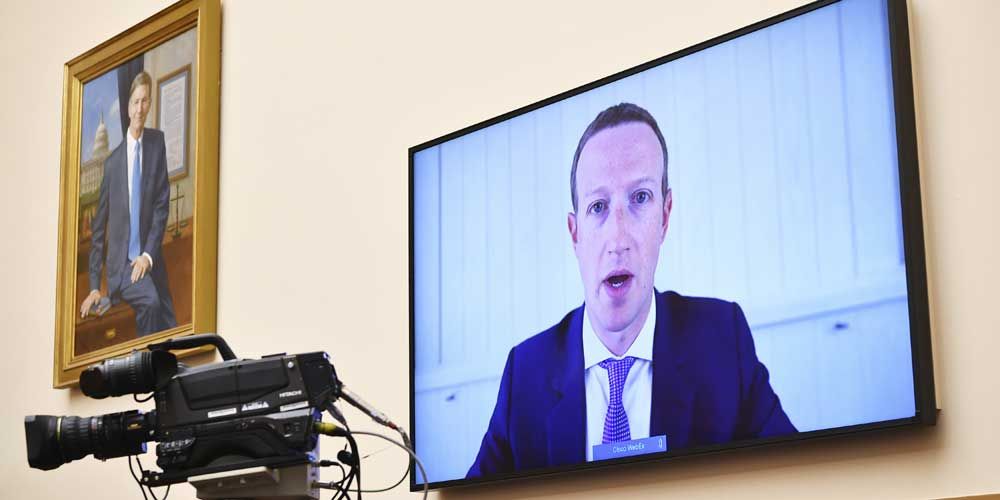
Interestingly, generally speaking, as long as the influence scale of a piece of news is described at the level of "government" and "market", many people can almost make many people think that this matter has nothing to do with them. But in fact, is this really a struggle between "government" and "market"? Or is this actually a most personal daily topic related to human nature, habits and the amount of information received? In this regard, what is the difference between Web 2.0 and Web 3.0, and how will it affect the future?
The Human Side of Web 2.0
In 2019, the United Kingdom staged a film " Brexit: The Uncivil War ", which told how strategists supporting Brexit organizations used "big data" and social media on the eve of the 2016 Brexit referendum. The media, the process of persuading the British people to vote to leave the European Union.

Dominic Cummings delivered and estimated one billion targeted adverts to voters thought AggregateIQ in the lead up to the Referendum. Arron Banks admitted that Leave. EU also hired a data firm specializing in the targeting of voters - Cambridge Analytica. He has since denied giving them paid work. It is estimated that Dominic Cummings (the main character of the film) delivered a billion targeted ads to voters through the Aggregate Think Tank before referendum day. Aaron Banks has admitted that the official Brexiteer website also employs a data firm that specializes in voter targeting: Cambridge Analytica. He has since denied having an employment relationship with him.
A genius meets a tool and takes it to the extreme, leading to the birth of Brexit. What you can find is that when public opinion and the media can make the public a tool for their own use, basically a referendum is not necessarily a truly convincing method. The widely accepted principles make many people "convinced" of the results.
However, those in power will understand this simple truth, so when faced with related topics, many people will only unilaterally infer that the "regime" defines some large development organizations as "monopoly" and tries to The single reason for their removal is the belief that they are threatening themselves.
However, the emergence of Web 3.0 proves that this single reasoning is not 100% accurate, because if "human nature" is not calculated into the calculation - as in the "Battle of Brexit" movie, the protagonist finds out those forgotten The voice of the people in order to win - neither government nor large corporations will acquire a social phenomenon that leads to their own success.
People who understand human nature don't understand politics, and those who understand politics don't understand human nature, causing the world to stand still.
Web 2.0 takes advantage of most people's desire to be "loved" and pushes people into the trap of laziness. As Ben Xiong mentioned in "The Real Decentralized Writing Platform Mirror.xyz, Communication with Changzhu Members and Q&A" , through algorithms and social networking sites, the information people get is being calculated and allowed Before the information flows into the line of sight, the pieces of filter membranes, without people's knowledge, delete all the truth from people's eyes by a certain calculation method, and only keep the calculated, The worldview that people want to see. E.g:
Assuming that Ben Xiong's article is "strictly selected" by the square grid, it will get 4 to 30 times more reading than other articles, but if it is not selected, the reading volume of this article is in the square grid, which will be It is possible to have only single digits. Ben Xiong cut out the other two articles he wrote so that you can compare them quickly. The following articles were once selected as "Editor's Strict Selection":
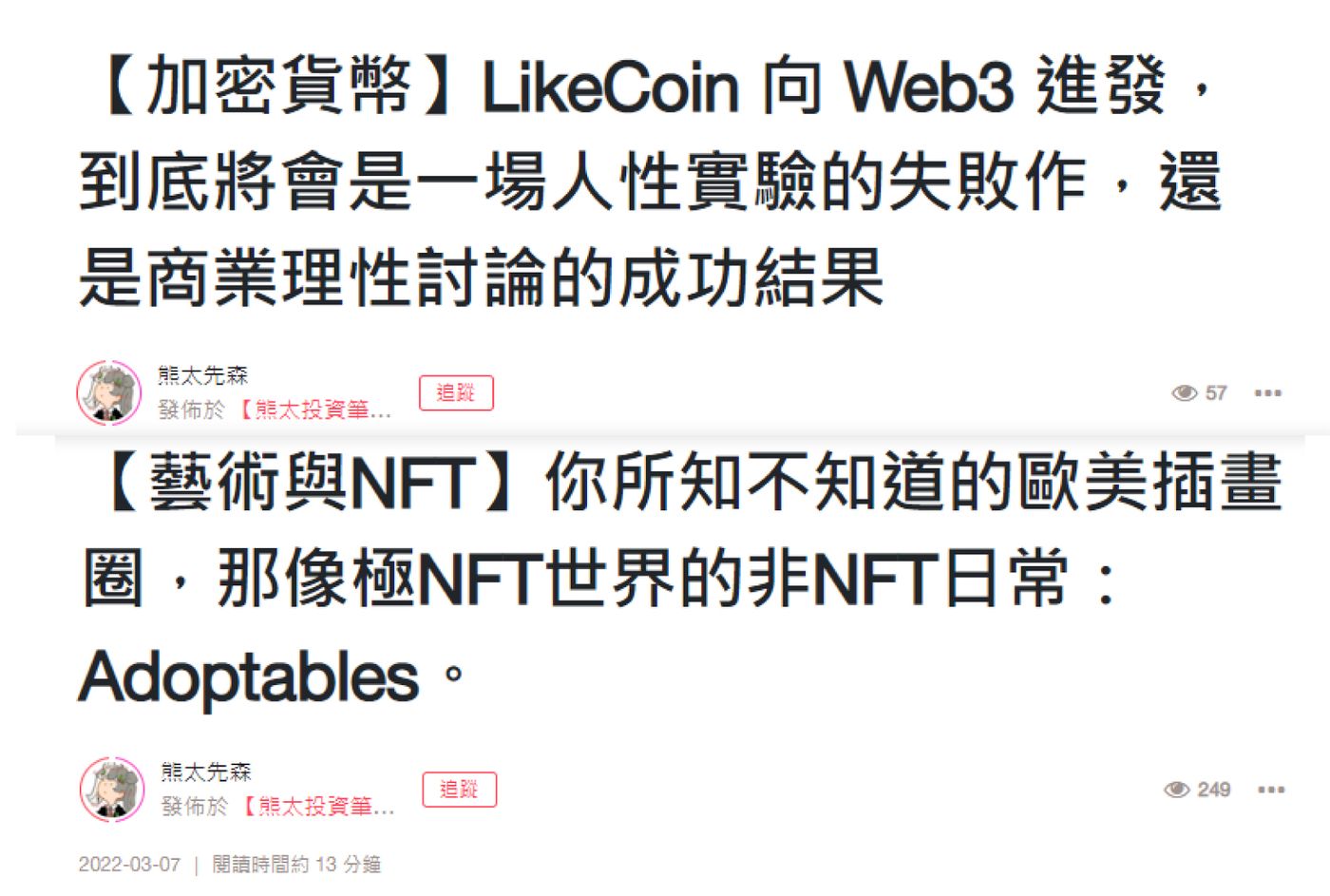
What’s interesting is that the same article was published on different platforms, such as Matters, with completely opposite results, confirming that different platforms are actually equal to different power centers, which led to the focus articles that users of each platform will pay attention to. are not the same.

The above situation has led to the occurrence of the comfort zone and the stratosphere, and has also deepened social contradictions and the problem of the disparity between the rich and the poor: the former is caused by insufficient and different information reception. How far is the received information from the information received by the elders and the elderly; the latter is because of the manipulability of Web 2.0, also known as centralization, people can trade, buy likes, buy fans, buy, share, buy advertisements, and even Direct manipulation behind the scenes in exchange for the support of "algorithms", so that the information you want to be seen by people can be sent to the eyes of the target you designate in the most accessible way, so as to gain more support and wealth, such as:
You can see the "clapping hands" in the picture showing Matters article data, which actually represents a data that can obtain a certain amount of "cryptocurrency".
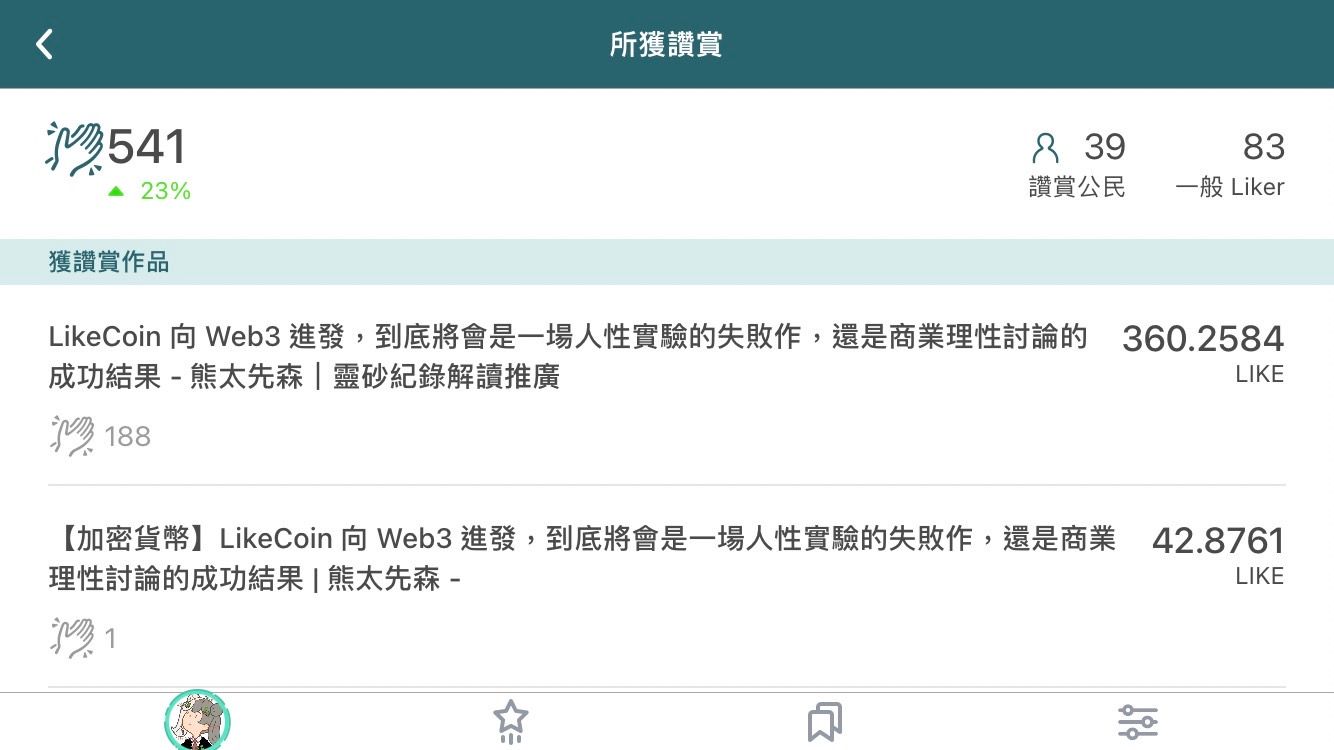
Its mode of operation is based on LikeCoin's mechanism of turning praise into appreciation. In a certain way, praise (that is, clapping) is converted into evidence of encrypted currency through a predetermined formula and rules. Based on different platforms, as long as you publish articles that can meet the interests of the same level, you can get a larger number of claps, and thus have a greater possibility to obtain more wealth. LikeCoin's existing mechanism is a perfect example of this.
On the other hand, according to Ryan Fedasiuk, a researcher at the Center for Security and Emerging Technology at Georgetown University, published by 2021 at the Jamestown Foundation, a Washington think tank Jamestown Foundation) report, Chinese party committees at all levels tried to hire some online commentators in the early days, directly guiding and forming small teams, and at the same time publishing various remarks and comments on the Internet, that is, the "fifty cents party." But in recent years, the system has gradually expanded, especially after the Chinese Ministry of Education and the Central Committee of the Communist Youth League jointly issued guidance in 2015. “The CCP not only employs commentators, but also begins to rely on a large number of volunteers.” ( source )
In other words, the so-called "truth" will be distorted by adding salt and vinegar to a certain information by a large population, and the so-called large population will be obtained through transactions or interpersonal networks and power manipulation.
So, if a human being is to succeed in such a world, he may have to meet several conditions:
- Exaggerated, using unexpected methods to attract the attention of others;
- Wealthy, gain more attention or support by buying the consent of others through transactions;
- Strength, has a head that can walk at the forefront of the trend, so it is not affected by the calculation of the algorithm, or directly becomes the focus of the calculation, such as Steve Jobs;
- Follow, follow the ethos and trends calculated by the algorithm, and become a sardine that moves along the currents of the times;
- Fortunately, an opportunity and an idea that is strong enough to resist algorithms and trends.
Ben Xiong may be one of the ones with pompous elements, distaste for the Web 2.0 model, and the stubbornness of a creator. We used to run a page with more than 5,000 fans, but it was later banned by politics, society The influence of factors—that is, the power manipulation behind the centralization, and the algorithm that believes that "people who do not have long-term updates" have no value, causing our fans to become the existence of only false data.
In the Web 2.0 model, a small spirit can be difficult to maintain. In particular, technology has brought the laziness of the seven deadly sins of human nature into full play, and the results are sought after by most people: lazy bags that can quickly receive data and key points, small information that is too short to bring out the real value of the content, zero knowledge There are a lot of hydrological speeches, etc., the algorithm tends to require people to use a resolute tone to briefly describe one thing in less than five crosses, so that more people can get a quick self-identification pleasure from it, and even by being liked and sharing. And to get a small satisfaction, in exchange for the distortion of society and people's thinking.
As far as the conclusion is concerned, the reading ethos has not been improved in the world of Web 2.0, and has even been rewritten and pushed into a more chaotic abyss, which has led to the troughs of the general publishing industry:
"It's all words, what do people think?"
Web 3.0 revolution
The concept of Web 3.0 has attracted global attention due to the voices of opposition and suspicion of some celebrities against Web 3.0. For example, Jack Dorsey, one of the founders of Twitter, Elon Musk, CEO of Tesla , etc., all think that Web 3.0 is only a marketing method, a kind of false phenomenon.
However, despite the objections of these celebrities, Web 3.0 continues to expand. Although the blockchain world has recently entered a bear market stage, it does not mean that the development has stopped. It can be seen that many people still have hope and support for Web 3.0. For example, a16z partner Chris Dixon pointed out that "Web 3.0 is still in its early stages, and it is a good time to participate.", Balaji Srinivasan, former chief technology officer (CTO) of Coinbase, said that "Web 3.0 gives a possibility, not a guarantee." And so on, it all shows that Web 3.0 has an appeal, just like ten years ago, no one thought that Bitcoin would be successful, but there were still some people who invested with hope, and finally exchanged huge wealth.
What exactly is Web 3.0?
The early basic concept of Web 3.0 actually came from the Semantic Web (Semantic Web) proposed by Tim Berners-Lee, known as the father of the World Wide Web, in 1998. In an interview in 2005, he pointed out that the Semantic Web is Web 3.0 in his mind. In the new generation of Internet, computers will process content in a way that simulates human beings, and all data can be understood and connected according to context and concepts.
In 2014, Gavin Wood, co-founder of Ethereum, re-proposed the idea of Web 3.0, pointing out that the world should have a basic network transmission protocol that is uncensored and low-threshold to replace traditional network technologies such as AJAX, HTTP and MySQL , and can verifiably protect the information and capital flow of network users, and this is what ordinary people know as Web 3.0. ( source )
The ideal state of Web 3.0 for creators
To elaborate on Web 3.0, it is necessary to mention "decentralization" - the biggest core idea of Web 3.0. Simply put, the information received by users will no longer be controlled and disseminated by powerful organizations such as social media, search engines, and governments, which almost rewrites the social model established by Web 2.0.
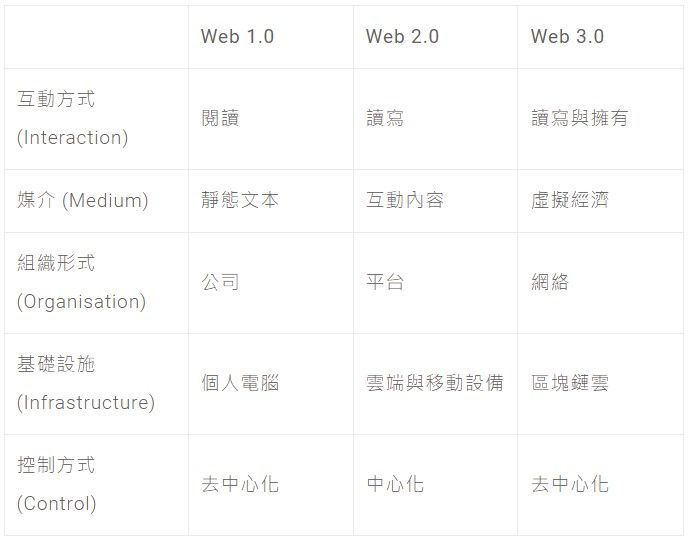
In the most ideal situation, Web 3.0 users can communicate with other users in a fair competition situation where privacy is guaranteed, rather than being controlled by algorithms and causing unfair competition. This change directly pulls all creators onto the same platform and requires them, in complete fairness, to figure out their path to success. In other words, the party with real strength and action will have a greater advantage and chance of success.
"With the index, the author with large traffic catches All, and the author with small traffic has really become a grain of sand in the times." said tina7, the community administrator and head of the Chinese community of the decentralized writing platform Mirror .
How to promote Web 3.0 and Web 2.0
If a group continues to use the perspective of Web 2.0 to manage the promotion of Web 3.0, it will be in a very bad form. This is also the case when I wrote " [ Cryptocurrency] LikeCoin's March to Web3, it will be a failed experiment in human nature. , is also one of the reasons for the successful outcome of business rationality discussions .
When a group that was originally recruited and operated by Web 2.0 suddenly moved to Web 3.0 without any teaching or assistance during the period, it would naturally arouse dissatisfaction among users in the heterosphere, because their operation mode is so inappropriate. Same:
Web 2.0 is more about advocating that goods or people become valued in the eyes of others, while Web 3.0, on the contrary, is a circle that focuses on personal characteristics, that is, everyone can demonstrate self-worth in order to be recognized.
And LikeCoin's approach seems to be like a service staff who said "I was going with you originally" suddenly became a boss of "you are going with me now". This feeling of different attitudes caused users in the isothermal layer to have ideas And information confusion, which has the opposite effect, but for the long-term development of LikeCoin, this may be a good thing - no one knows.
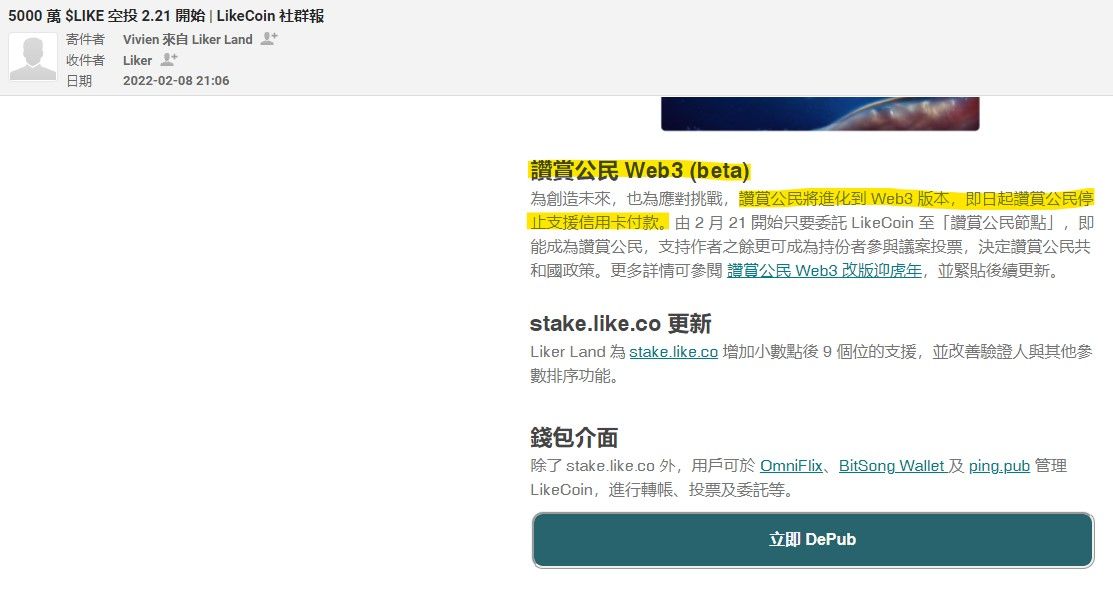
Ben Xiong believes that if you want to switch from Web 2.0 to Web 3.0 for an existing thing, service or commodity, Ben Xiong strongly recommends that you first set your own goals and social positioning, and work hard to help Users who use services and are completely accustomed to the Web 2.0 model make the transition.
As for if you want to develop a new project and develop in Web 3.0, you must find out your own personal or project characteristics, and try to find a balance between Web 2.0 and Web 3.0, so that both become beneficial to you The state of development, such as using social media to promote their own Web 3.0 At the same time, you can also think about how to promote the advantages of Web 3.0 to Web 2.0 and the real world, so as to attract people to enter the circle, and at the same time let their own finished products, For example, the usefulness of NFT becomes more and more diverse.
The shortcomings of Web 3.0 come from the spoiling of users by Web 2.0
Because of the loss of centralized assistance, it is easy to find a pattern of suitable resources in Web 3.0, and it will easily become that in the era of very Web 1.0, you must practice to search for suitable information. This incident has undoubtedly become a stumbling block for those users who have been accustomed to the Web 2.0 model after two decades, stepping into Web 3.0. Five years ago, Ben Xiong could still hear people blaming the "hands-on party" who asked questions without doing a good job of data collection. Now everyone is used to it and will take the initiative to offer relevant assistance, but in fact, this has not solved any fundamental problems. .
At the same time, based on the decentralized relationship, the transaction speed on Web 3.0 will be slower than Web 2.0, unless users have fast, complete and advanced technological support. Since any actions, such as state changes such as payment processes, need to be processed by miners and propagated throughout the network, scaling becomes slow and expensive. On the other hand, Web 3.0 is more dependent on technology and new technologies, resulting in expensive development costs...
But more worrisome are definitely those about hate speech and cybercrime. Due to decentralization, it is difficult for those in power to control data and speech on the Internet, making it difficult to catch criminals and use the law to punish them. Related simple examples exist in reality. There was news on April 1st that the famous NFT group was attacked by hackers, and many celebrities, such as Jay Chou, were deeply affected.
However, Ben Xiong believes that this is the era of chaos before the emergence of a new set of game rules. In fact, the so-called crime is just because people are too lazy to deal with some problems that do not directly affect themselves, and use the method of formulating laws or rules to define some behaviors as a concept of "crime" or "disapproval", so even if "Democracy" is not necessarily "justice". Take the Juno Motion 16 of the Cosmos ecosystem as an example:
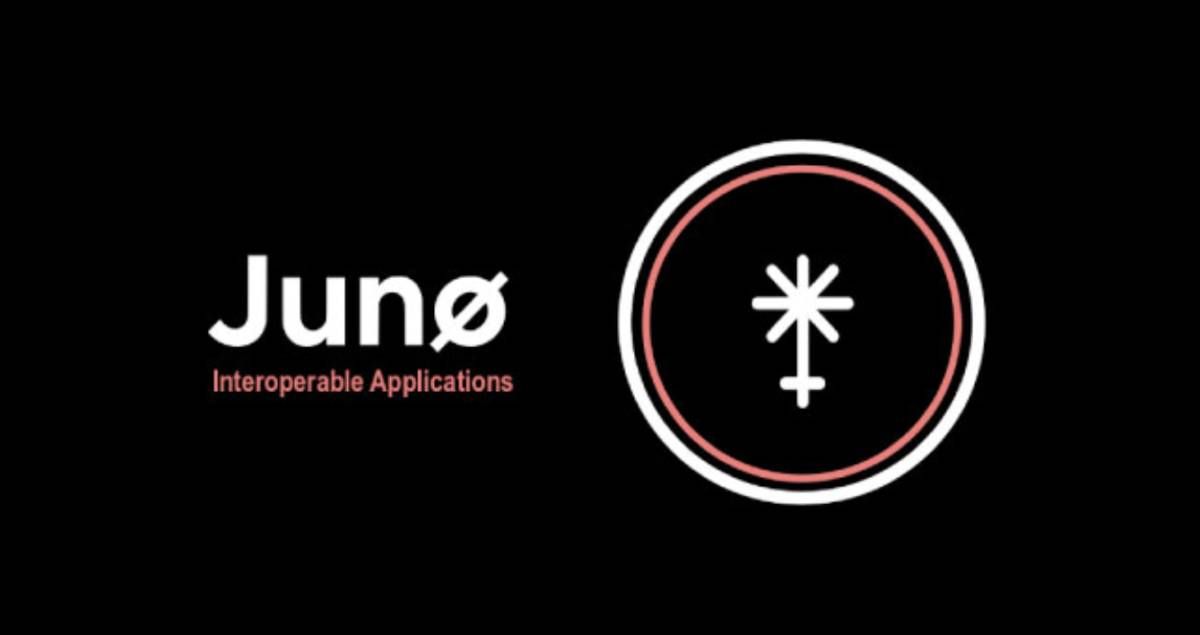
In March of this year, when Juno held an airdrop, a giant whale obtained a total of 2.5 million airdrops through 50 addresses, which led to a motion in the community to cancel the additional airdrop the giant whale received ( source ). Just looking at this incident, it looks like it is an example of evil and punishment, but in fact, the giant whale's actions did not violate the rules - you can say that it was used maliciously, but malicious use is not the same as breaking the rules. In contrast, the group that made the rules did not find this bug, and it should be the problem, but in the end, the giant whale was miserably put on public trial because of the negligence of the group, and because the motion was passed, all additional airdrops were confiscated, and private property rights were crushed through public opinion. :
Isn't this a case of Longmen Renmin?

Fish ball theory, interests, and the so-called "minority obeying the majority" that conforms to the democratic concept are all the rules and chips of the game in the end. In the above case, what is "disapproval", what is "crime", and what is "justice"? Before finding the concept that he recognizes and agrees with, Ben Xiong can only tell you one thing:
Welcome back to the world of Web 2.0.
in conclusion
In the end, the future direction of the world will return to the comfort zone of Web 2.0, to the embrace of Web 3.0, or will someone find a balance between the two?
No matter where the world is headed, Ben Bear shares the same desire as Dominic Cummings, the protagonist in The Battle for Brexit, that someone will see a big shift without being blindly influenced by the habit of the masses to think that That is a mistake, not an opportunity; at the same time, when a system is broken, there will be people who have the courage to repair or even reset the system, instead of blindly cooperating, listening to those who can only talk and do nothing, From the world, the country, the community, and even myself, to walk in the same place in the world.
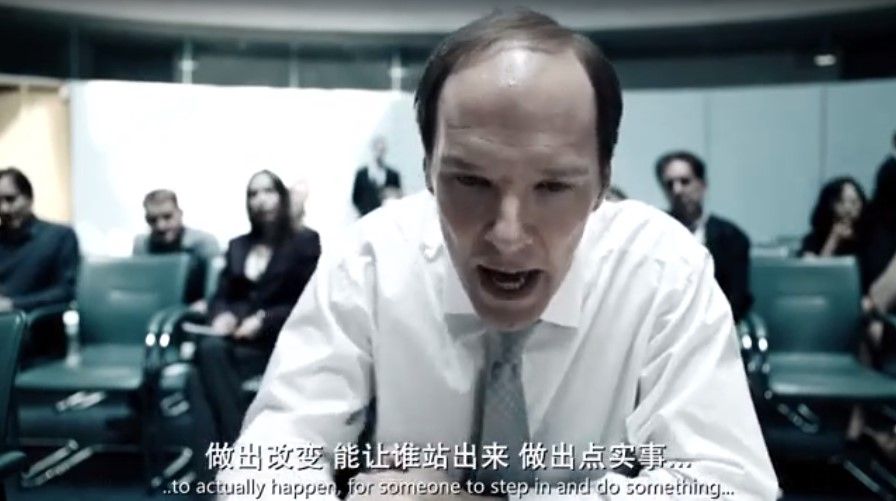
The shortcomings of Web 3.0 will always be solved by technological progress. At that time, it may be a complete reset. This time, Ben Xiong first published the article on Mirror , the most de-China writing platform for the time being, which is also an expectation for the future.
This article first appeared on Mirror and has since been published on Penana , Matters , Grid and Potato Media .
If you want to support Ben's creation, in addition to sponsoring, you can:
Like Facebook Page: I-Boom Creation House
Commission design, typography, illustration, etc.: https://iboomcreative.com
Buy us a coffee: https://ko-fi.com/iboomcreative
Like my work? Don't forget to support and clap, let me know that you are with me on the road of creation. Keep this enthusiasm together!






- Author
- More